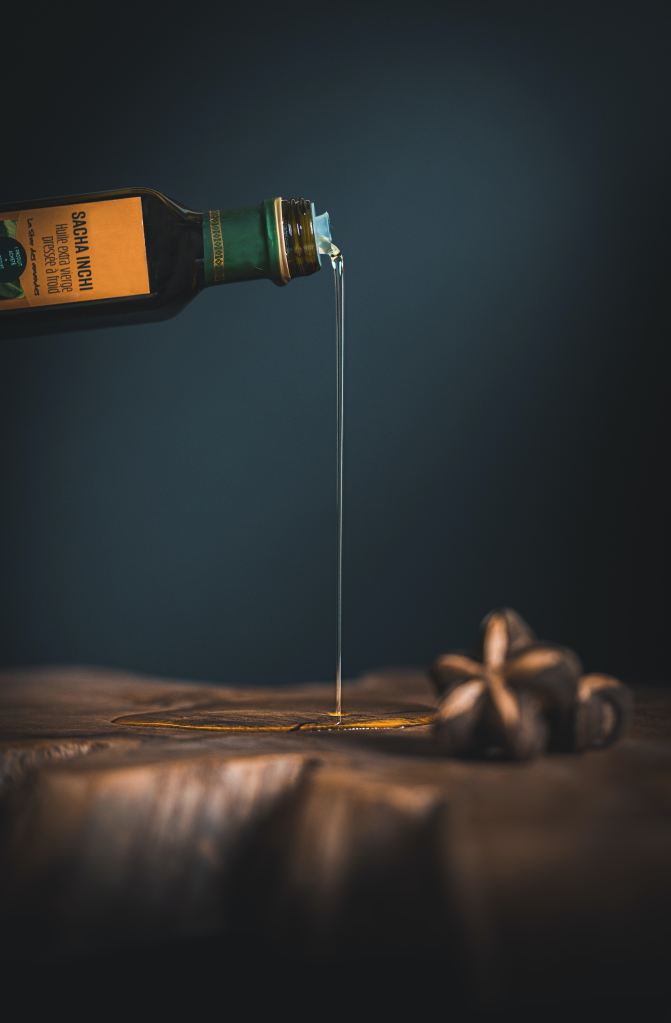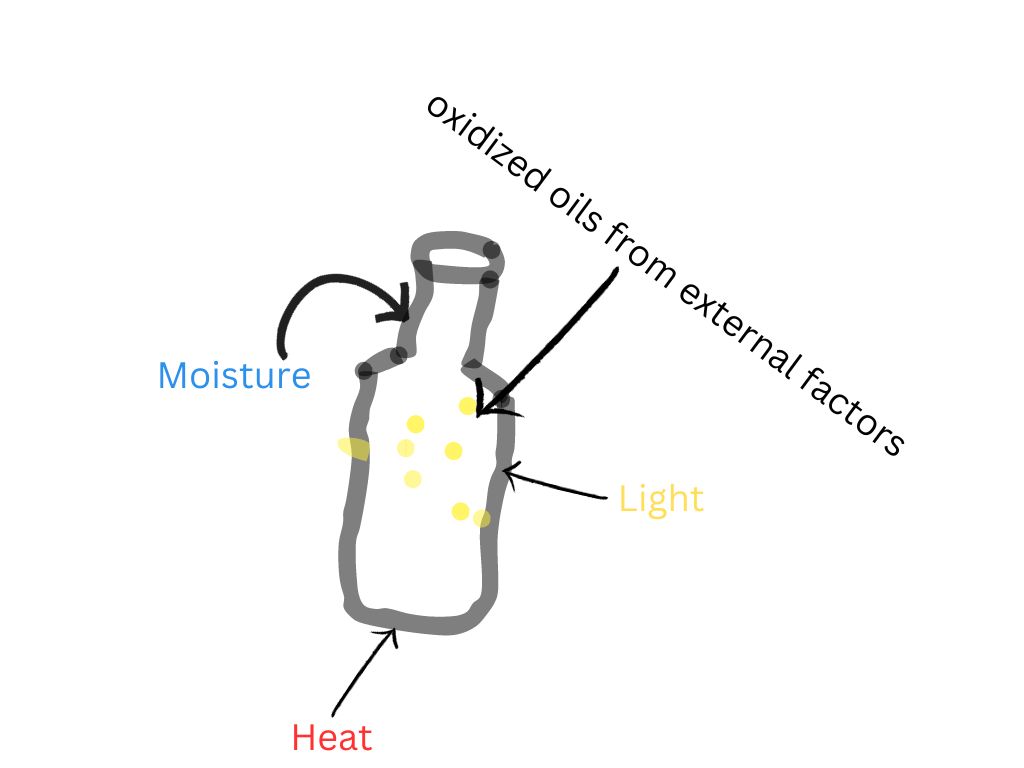
Image credit: Alexis Antoine on Unsplash
Olive oil is a versatile oil with a rich flavor, health benefits, and various uses in the kitchen. Contrary to belief, olive oil has its own antioxidants, which helps prevent oxidation than most other oils like soybean, sunflower, and peanut oils. Though it is still susceptible to rancidity when it reaches 400F/ 212C. Rancidity refers to the process where olive oil oxidizes and breaks down, leading to off-flavors, an unpleasant smell, and reduction in nutritional value.
Some tips to keep olive oil from oxidizing:
1. Avoid exposure to light, heat, and moisture: these factors can cause oxidation. To prevent decomposition of olive oil, place the container in a cool, dark, and dry place.

Created by Canva
2. Store olive oil in airtight containers: exposure to air can also cause oxidation of oils. Store your oils in airtight containers to prevent air from coming into contact, such as the container in the above image.
3. Refrigerate your olive oil: refrigeration can help extend the shelf life of oils by slowing down the oxidation process.
4. Use antioxidants: vitamin E, for example, can help prevent oxidation of oils. Add a few drops to your oil to help extend its shelf life.
5. Avoid metal containers: glass or dark containers are the best, stay away from plastic, as it can leak into the oil. This can cause health issues.
6. Herbs: There is some evidence that use of thyme or tea extract helps with olive oil stability.
7. Mixing oils: chia seed oil improves the oxidative stability and shelf life of sesame oil. Mixing helps with shelf life, and stability of many oils.
8. Use within a short time: The sooner you use it when you purchase the oil, the better the flavor and freshness. Olive retains the best quality for 18-24 months from time of bottling. Also, depends on several factors like heat, temperature, acid, and others mentioned above. This would determine how long your oil will last in your cupboard, or fridge.
9. Harvest date stamp: The stamp tells the consumer when the olives were picked and bottled, and shows the highest quality, freshness, and flavor profile of the final product. Look for “harvest date” or something in those lines. Even though this is different than the shelf life of olive oil. This can indicate a better product, and maybe less rancidity.
I hope these tips help you keep your oils fresh, and prevent them from oxidizing!
References
1- Tisserand, Robert (2015-2024). Oxidation and the Shelf Life of Essential Oils – Tisserand Institute. Website: https://tisserandinstitute.org/oxidation-shelf-life-essential-oils/.
2- Anderson International Corp (July 16, 2021). Oil Oxidation: How To Measure It And Why It Matters. Website: https://www.andersonintl.com/oil-oxidation-how-to-measure-it-and-why-it-matters/.
3- Fadda, Angela et al. (2022). Innovative and Sustainable Technologies to Enhance the Oxidative Stability of Vegetable Oils. Sustainability 14, no. 2: 849. Website: https://doi.org/10.3390/su14020849
4- Rales, M.T., Przybylski, R. (2013). Olive Oil Oxidation. Handbook of Olive Oil; pp 479–522. Website: https://doi.org/10.1007/978-1-4614-7777-8_13

Pingback: Food science topics – Alimentative